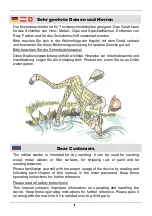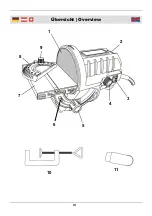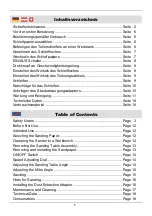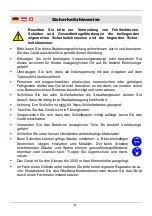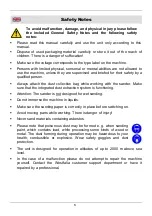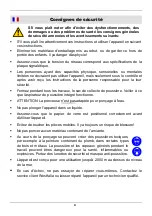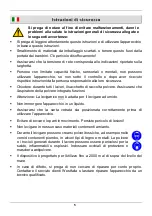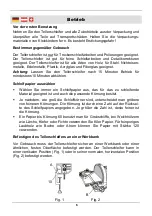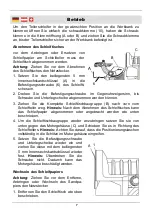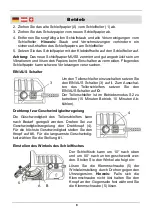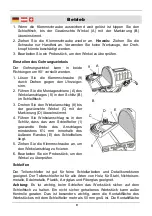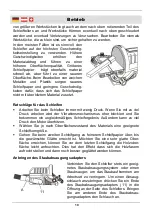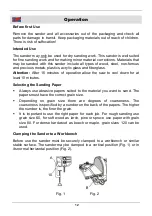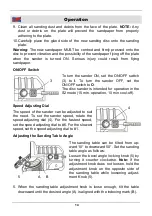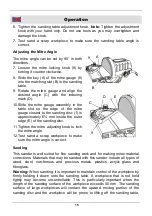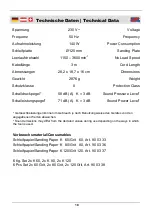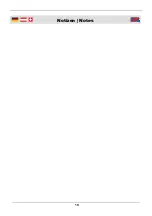
Consignes de sécurité
4
S'il vous plaît lire attentivement ces instructions et utiliser l’appareil en suivant
ces instructions.
Eliminer les matériaux d'emballage mis au rebut, ou de garder ce hors de
portée des enfants. Il ya danger d'asphyxie!
Assurez-vous que la tension du réseau correspond aux spécifications de la
plaque signalétique.
Les personnes ayant des capacités physique, sensorielles ou mentales
limitées ne devraient pas utiliser l‘appareil, mais seulement sous le contrôle et
après avoir reçu les instructions de la personne responsable pour la leur
sécurité.
Fermez pendant tous les travaux, le sac de collecte de poussière. Veiller à ce
que l’aspirateur de poussière intégré fonctionne.
ATTENTION: La ponceuse n'est pas adaptée pour ponçage à l'eau.
Ne pas plonger l'appareil dans un liquide.
Assurez-vous que le papier de verre est positionné correctement avant
d'utiliser l'appareil.
Évitez de toucher les pièces mobiles. Il ya toujours un risque de blessure!
Ne pas poncer aucun matériau contenant de l'amiante.
Au cours de la ponçage se peuvent créer des poussières toxiques,
par exemple à la peinture contenant du plomb, dans certains types
de bois et métaux. La poussière et les copeaux générés pendant le
travail peuvent êtres dangereux pour la santé, inflammables ou
explosives. Portez des lunettes de sécurité et masque anti-poussière.
L'appareil est conçu pour une utilisation jusqu'à 2000 m au dessus du niveau
de la mer.
En cas d'échec, ne pas essayer de réparer vous-mêmes. Contactez le
service client Westfalia ou laisser réparé l’appareil par un technicien qualifié.
S'il vous plaît noter afin d'éviter des dysfonctionnements, des
dommages ou des problèmes de santé les consignes générales
de sécurité annexées et les avertissements suivants:
Summary of Contents for 90 00 83
Page 3: ...III Übersicht Overview 1 2 5 6 7 8 9 3 4 10 11 ...
Page 23: ...19 Notizen Notes ...
Page 24: ...20 Notizen Notes ...


